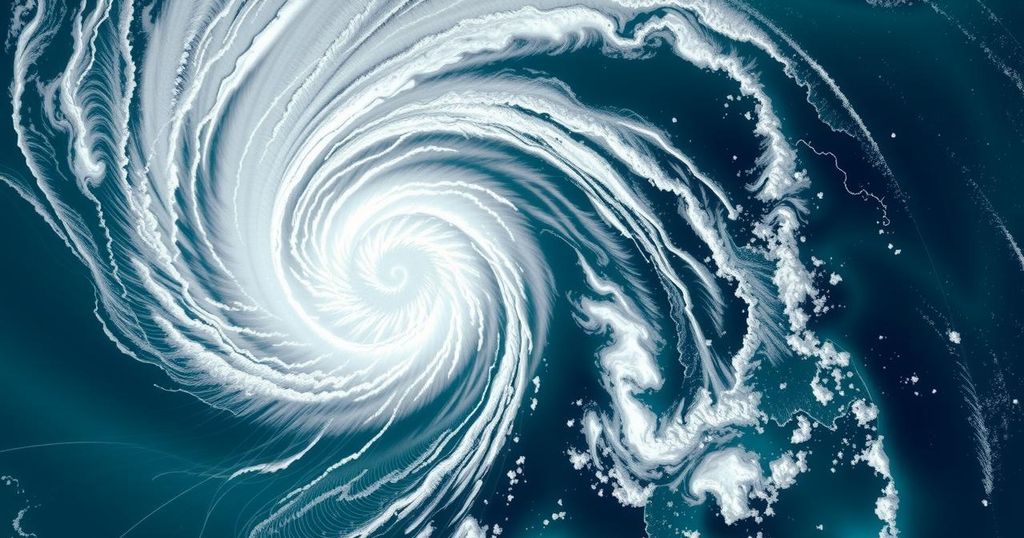Cyclone Chido struck Mayotte on December 14, 2024, as a potent Category 4 storm with winds reaching 225 kilometers per hour. It formed on December 5 and intensified before affecting the Mauritian islands and then making landfall in Mayotte. This cyclone is noted as the strongest to hit the region in over 90 years and caused widespread destruction before continuing on to Mozambique.
On December 14, 2024, Cyclone Chido severely impacted the islands of Mayotte with fierce winds and extensive damage. Originating in the southeastern Indian Ocean on December 5, Chido intensified rapidly, particularly affecting the Mauritian islands of Agaléga on December 11, where it reached peak winds of around 250 kilometers per hour. Shortly thereafter, it maintained strength, making landfall in northern Mayotte with sustained winds of 225 kilometers per hour. Notably, Chido is considered the strongest cyclone to strike Mayotte in over nine decades.
Cyclones are intense circular storms that originate over warm tropical oceans and are characterized by low atmospheric pressure, high winds, and heavy rains. In recent years, climate patterns have led to an increased frequency and intensity of such storms, particularly in oceanic regions like the Indian Ocean. Cyclone Chido is a stark illustration of this trend, wreaking havoc across the islands it traversed, namely Mayotte and Mozambique. Those affected by such storms often experience prolonged recovery periods due to infrastructure damage and economic impacts.
In summary, Cyclone Chido represents a significant climate event, marking a historic storm for the island of Mayotte and demonstrating the increased risks associated with powerful cyclones. The extensive damage reported underscores the continued vulnerability of island territories to natural disasters exacerbated by favorable storm conditions. As global climate challenges persist, monitoring and preparedness become essential to mitigate the impacts of such severe weather events in the future.
Original Source: earthobservatory.nasa.gov






